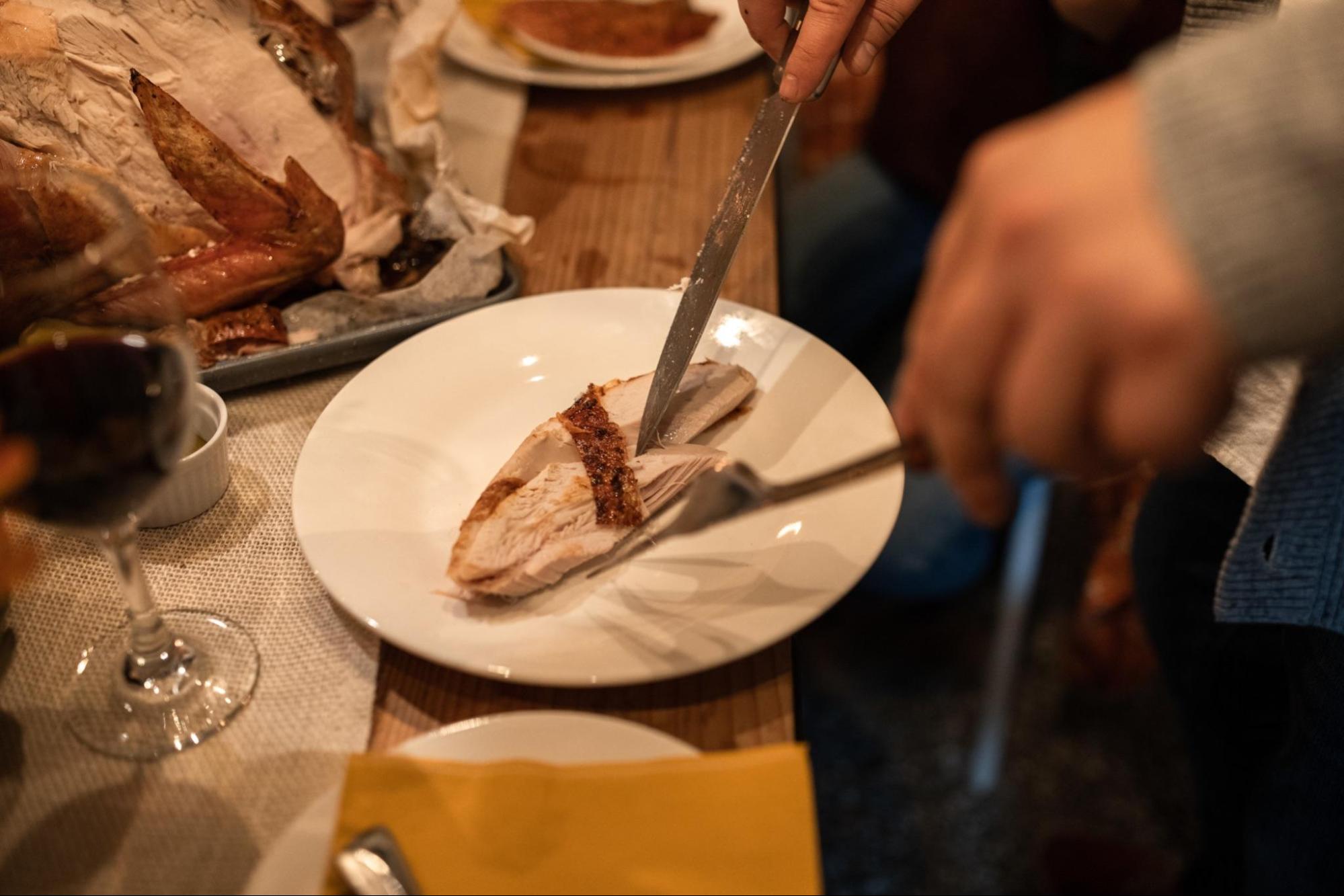Are you looking for a way to make your workout routine more nutritious? If so, turkey may be the answer! Not only is turkey one of the leanest proteins around, but it also packs an impressive amount of vitamins and minerals. Plus, with a variety of delicious recipes to choose from, turkey can easily become an everyday staple in the average person's diet. So let's dive in and explore the benefits of adding this bird to our diets!
Nutritional Benefits of Turkey
Turkey is often used as a protein source in dishes because it is delicious and healthy. 125 calories, 25.6 grams of protein, and no carbohydrates are in a three-ounce serving of skinless roasted turkey breast. Antioxidant selenium is one of the many B vitamins and minerals found in abundance in turkey.
Selenium is a mineral required for the immune system and thyroid gland to function correctly. It also helps to protect the body from free radical damage. Turkey is an excellent source of selenium, with a three-ounce serving providing nearly half of the daily requirement.
Turkey contains trace amounts of other minerals, including zinc, magnesium, and potassium, in addition to selenium. Zinc is required for immune function, wound healing, and DNA synthesis, whereas magnesium is required for strong bones and muscles. Potassium is necessary for fluid balance, blood pressure, and heart function.
While turkey is a good source of protein and nutrients, it's worth noting that dark meat has more vitamins and minerals than light meat. However, dark meat contains more calories and fat. As a result, it is advised to choose skinless turkey breast, which is lower in calories and fat while still providing a wealth of nutrients.
Related Link: Muscle Recovery With Supplements & Stretching
How to Make Nutrient-Rich Turkey Meals

While turkey is a good source of protein on its own, there are many ways to prepare it that can increase its nutritional value even more. One way to accomplish this is to include a variety of colorful vegetables in your turkey meals. Broccoli, peppers, and sweet potatoes are high in vitamins and minerals, which can boost the health benefits of your meal.
Using whole grains instead of refined grains is another way to prepare nutrient-dense meals with turkey. Whole grains, such as brown rice, quinoa, and whole wheat pasta, contain fiber, aiding blood sugar regulation and promoting feelings of fullness. When cooking with turkey, consider using healthy fats such as olive or avocado oil. These fats can aid in the absorption of fat-soluble vitamins such as vitamin E, which is found in turkey.
Interested in enhancing your workouts with performance gummies? Visit HUMBLEROOTS today!
Different Ways to Cook with Turkey
Turkey Prepared in a Variety of Ways
Turkey offers a lot of culinary versatility because it can be prepared in many different ways. The roasting technique is widely used because it produces crispy skin and tender meat. You can also give your turkey a smoky flavor by grilling it. Soups, stews, and slow-cooked crockpot turkey are other great ways to enjoy this versatile meat. Beyond the various methods of preparation, a wide variety of seasonings and spices can be used to give turkey dishes an extra kick. Spices like garlic, paprika, and rosemary are frequently used. Cooking with fresh herbs like parsley and cilantro is a great way to give food a more vibrant flavor.
Putting That Extra Turkey to Good Use
There are a ton of creative uses for leftover turkey that will keep it from going to waste. One possibility is a salad featuring turkey, fresh vegetables, and a nutritious dressing. Even soups and chilis can benefit from the addition of turkey. Leftover turkey in a wrap or sandwich is another fast and easy lunch option. To preserve the flavor of your turkey, store it in the fridge in an airtight container. Turkey should be eaten no later than four days after it has been cooked for maximum safety and freshness.
Delicious and Nutritious Turkey Recipes

There are numerous delectable and nutritious recipes that use turkey as the primary protein source. Turkey meatballs, which can be made with ground turkey, breadcrumbs, and various seasonings, are one option. Turkey chili, made with ground turkey, beans, and various vegetables and spices, is another option.
Make a turkey and vegetable stir-fry with lean turkey breast and a variety of colorful vegetables for a lighter option. Turkey can also be used to make delectable soups, such as turkey noodle soup or turkey and vegetable soup.
Related Link: Homemade Protein Bars: No Bake Recipe
Precautions of Eating Turkey
However, one must take measures to ensure that eating turkey is as safe as possible. Raw turkey can be contaminated with harmful bacteria like Salmonella and Campylobacter if not cooked to an internal temperature of 165°F and handled correctly (by washing hands and utensils, for example). People who have never eaten turkey or have a history of food allergies should also talk to a doctor before adding it to their diet. Turkey is not appropriate for vegetarian or vegan diets. On top of that, some turkey products may have added sodium or nitrates as preservatives, which have their own health risks if consumed in large enough quantities. It is essential to read labels when shopping for turkey products to ensure you get a high-quality product with few unnecessary additives.
Looking for something to improve your gym performance? Put your trust in HUMBLEROOTS and check out our performance gummies!
Turkey: A Healthy Addition To Your Diet
All in all, turkey is a powerhouse adding both flavor and nutrition to your meals. If you're looking for a way to liven up your diet and get more nutrition, turkey should definitely be on your plate! Plus, if you need an extra boost in energy or want support for stress relief, make sure to check out our website to see how our gummies can help.
Related Link: Fat-Burning Workouts: Workouts to Lose Weight



